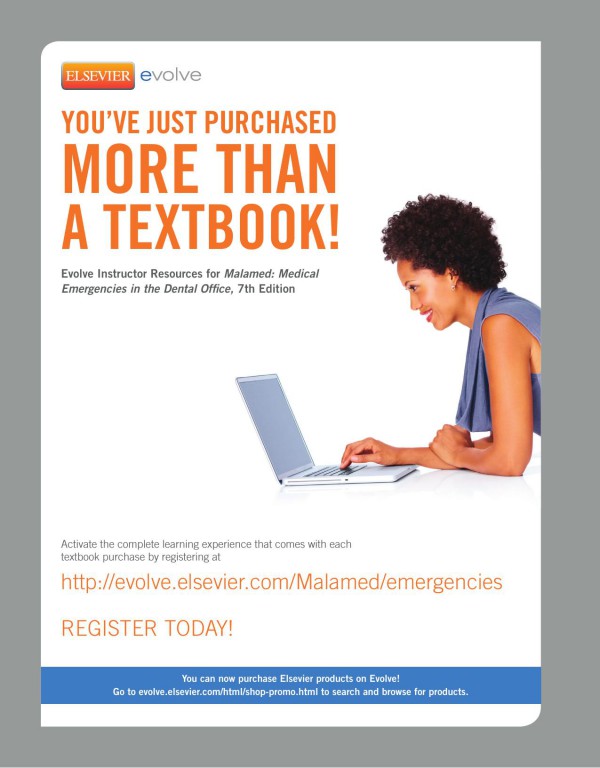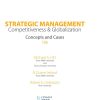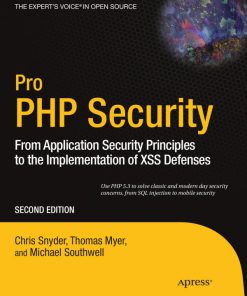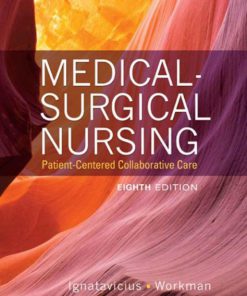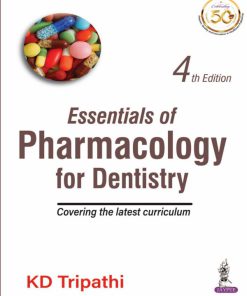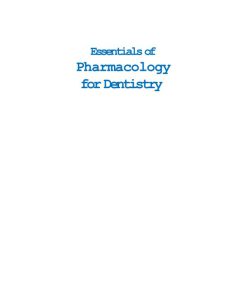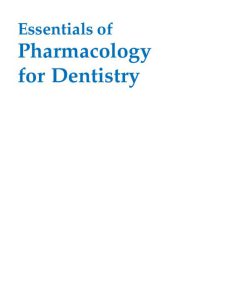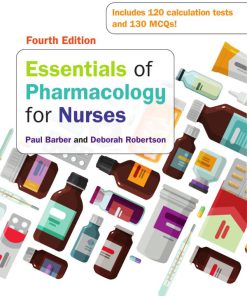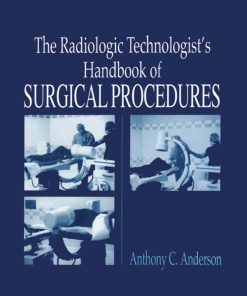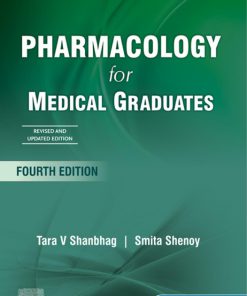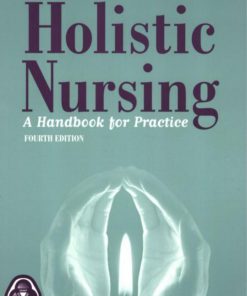Pharmacology for the Surgical Technologist 4th Edition by Katherine Snyder, Chris Keegan ISBN 0323340830 9780323340830
$50.00 Original price was: $50.00.$25.00Current price is: $25.00.
Authors:4<8=8AB@0B>@ , Author sort:4<8=8AB@0B>@
Pharmacology for the Surgical Technologist 4th Edition by Katherine Snyder, Chris Keegan – Ebook PDF Instant Download/Delivery. 0323340830 ,9780323340830
Full download Pharmacology for the Surgical Technologist 4th Edition after payment

Product details:
ISBN 10: 0323340830
ISBN 13: 9780323340830
Author: Katherine Snyder, Chris Keegan
Learn with the most trusted pharmacology text written specifically for surgical technologists! Pharmacology for the Surgical Technologist, 4th Edition ensures that as an integral member of the operating room team, you have an in-depth understanding of surgical medications. It covers everything from basic conversions, terminology, and calculations to anesthesia and medications used for perioperative care. This edition adds coverage of next-generation antibiotics, new technology in orthopedics, advances in cataract surgery, and more ― plus a full-color design and expanded art program. An Evolve companion website lets you practice drug calculations. Written by experienced Surgical Technology educators Katherine Snyder and Chris Keegan, this book covers all areas of pharmacology that are designated in the Core Curriculum for Surgical Technology, 6th Edition.
Pharmacology for the Surgical Technologist 4th Edition Table of contents:
Chapter 1: Introduction to Pharmacology
-
What is Pharmacology?
- Definition and Importance in the Surgical Setting
- The Role of the Surgical Technologist in Medication Administration
- Basic Principles of Pharmacology
-
Pharmacokinetics and Pharmacodynamics
- Absorption, Distribution, Metabolism, and Excretion
- Mechanism of Drug Action
- Drug-Receptor Interactions
-
Drug Classification and Sources
- Drug Classification Systems
- Natural and Synthetic Sources of Drugs
- Over-the-Counter vs. Prescription Medications
Chapter 2: Medication Administration and Safety
-
Routes of Drug Administration
- Oral, Parenteral, Topical, and Inhalation Routes
- Choosing the Appropriate Route in Surgery
- Common Administration Methods in the Operating Room
-
Drug Dosage and Calculations
- Units of Measurement and Conversions
- Calculating Medication Dosages
- Safe Handling and Dispensing of Medications
-
Patient Safety and Medication Errors
- Preventing Medication Errors in Surgery
- The “Five Rights” of Medication Administration
- Strategies for Ensuring Patient Safety in the Operating Room
Chapter 3: Anesthesia and Analgesia
-
General Anesthesia
- Types of General Anesthesia Agents
- Mechanism of Action and Side Effects
- Role of the Surgical Technologist in Anesthesia
-
Local and Regional Anesthesia
- Common Local Anesthetics Used in Surgery
- Indications and Administration Techniques
- Complications and Side Effects
-
Analgesics for Pain Management
- Opioid and Non-Opioid Analgesics
- Managing Postoperative Pain
- Safe Practices in Administering Analgesics
Chapter 4: Antibiotics and Antiseptics
-
Antibiotics in Surgery
- Types of Antibiotics Commonly Used in Surgery
- Mechanisms of Action and Resistance
- Appropriate Use of Antibiotics for Infection Control
-
Antiseptics and Disinfectants
- Role of Antiseptics in Preoperative Preparation
- Differences Between Antiseptics and Disinfectants
- Guidelines for Proper Use in the Surgical Setting
Chapter 5: Medications for Surgical Procedures
-
Sedatives and Hypnotics
- Indications for Use in the Operating Room
- Common Sedatives and Their Effects
- Role of the Surgical Technologist in Monitoring Sedation
-
Vasopressors and Anticoagulants
- Types of Vasopressors Used in Surgery
- Anticoagulants and Their Role in Preventing Thrombosis
- Monitoring Patients on Anticoagulants During Surgery
-
Blood and Blood Products
- Indications for Blood Transfusions in Surgery
- Types of Blood Products and Their Administration
- Risks and Reactions Associated with Blood Transfusions
Chapter 6: Emergency Medications and Resuscitation
-
Emergency Drugs in the Operating Room
- Common Emergency Drugs Used in Surgery
- Protocols for Administering Emergency Medications
- Handling and Storing Emergency Medications
-
Cardiac Arrest and Resuscitation Medications
- Drugs Used in Cardiopulmonary Resuscitation (CPR)
- The Role of the Surgical Technologist in Resuscitation
- Advanced Cardiac Life Support (ACLS) Medications
Chapter 7: Medications for Special Populations
-
Pediatric Pharmacology
- Dosage and Medication Considerations for Pediatric Patients
- Common Medications Used in Pediatric Surgery
- Safety and Monitoring in Pediatric Anesthesia
-
Geriatric Pharmacology
- Age-Related Changes in Drug Metabolism
- Considerations for Administering Medications to Elderly Patients
- Common Geriatric Medications Used in Surgery
-
Pregnancy and Pharmacology
- Safe Use of Medications During Pregnancy
- Teratogenic Effects and Risks
- Medications Contraindicated in Pregnancy
Chapter 8: Pharmacology and the Surgical Technologist’s Role
-
Surgical Technologist’s Responsibilities
- Role in Medication Preparation and Administration
- Maintaining Accurate Drug Records in the Operating Room
- Ensuring Compliance with Medication Regulations and Laws
-
Ethical and Legal Considerations
- Legal Aspects of Medication Administration in Surgery
- Ethical Considerations and Patient Confidentiality
- Handling Controlled Substances in the Operating Room
People also search for Pharmacology for the Surgical Technologist 4th Edition:
pharmacology for the surgical technologist quizlet
pharmacology for the surgical technologist 5th edition
pharmacology for the surgical technologist
surgical technology for the surgical technologist 5th edition pdf free
You may also like…
eBook PDF
Essentials of Pharmacology for Dentistry 4th Edition by KD Tripathi ISBN 9350904209 9789350904206
eBook PDF
ESSENTIALS OF PHARMACOLOGY FOR DENTISTRY 4th Edition by KD Tripathi 9350904209 9789350904206
eBook PDF
ESSENTIALS OF PHARMACOLOGY FOR DENTISTRY 4th Edition by KD Tripathi 9350904209 9789350904206

